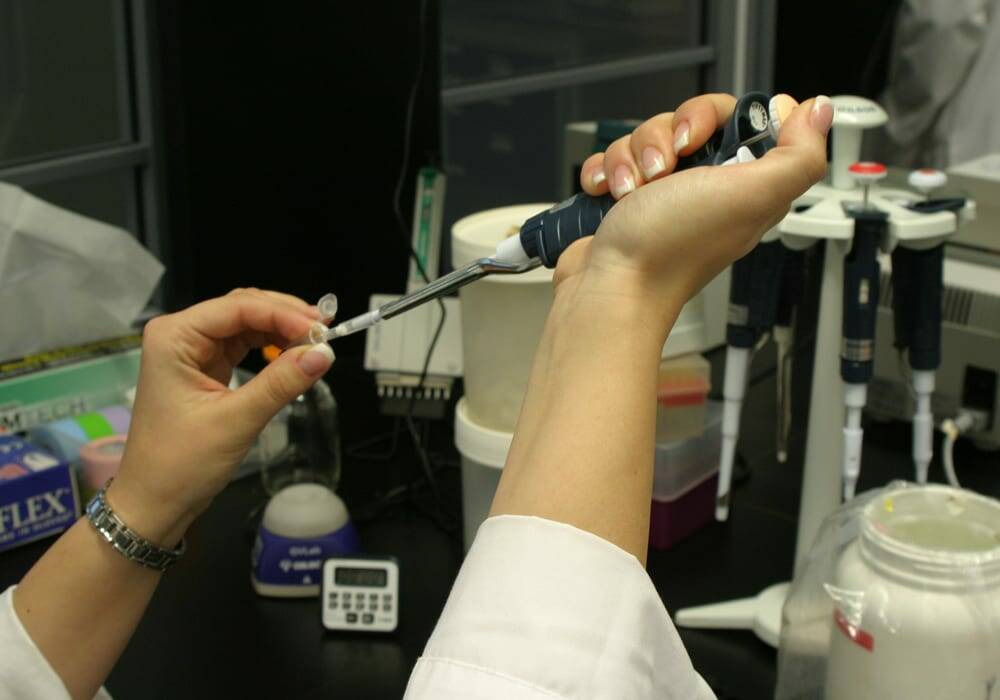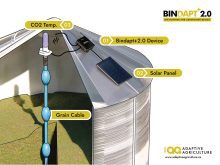A U.S.-based organization is working to shed light on what agri-business companies do with Canadian farmers’ data.
“Even though no one is reading a lot of these (terms and conditions) contracts that we’re signing, those terms do actually matter, and they can actually govern your relationship with the technology,” said Todd J. Janzen, an agriculture lawyer and administrator with Ag Data Transparent.
Ag Data Transparent is a certifying body that evaluates agri-business firms on how they collect, store, use and share farmer data. Companies that meet its criteria can receive the Ag Data Transparent seal.
Read Also

Ship’s turning for gene-edited crops
More and more countries have decided that gene-edited crops will be treated the same as conventional plant breeding.
Janzen spoke about the organization at the Agriculture Enlightened Conference hosted by EMILI in Winnipeg on Nov. 7. He said many agriculture technology companies copied the same legal agreements that other tech firms had been using for years.
“These aren’t necessarily contracts that you would want to emulate if you were drafting them from scratch,” he said.
Like many people who hit “accept” when terms and conditions pop up on their phones, farmers tend not to read the contracts, said Janzen. This signaled lawyers that they could write whatever they wanted.
The forms are complicated and confusing, and farmers lack trust in what will be collected and how it will be used. Regulations are a patchwork at best, said Janzen.
In 2014, the American Farm Bureau Federation and several other U.S. producer groups acknowledged farmers’ concerns and worked with representatives from the agriculture technology and equipment industry, such as John Deere and CNH, to draft ADT’s core principles, the organization’s website says.
Those principles include farmer education, simple contracts, transparency over data ownership, control, collection and use of data, notice of changes to data agreements, and farmer choice, among others.
To become certified, companies must undergo an evaluation, which asks questions about the types of data collected, who owns it and how it will be used. For instance: “After I upload data to the (ag tech provider), will it be possible to retrieve my original complete data set in an original or equivalent format?”
If any of the company’s answers don’t align with ADT’s requirements, it will point out what needs to be fixed, Janzen said. When a company is certified, its answers to the questionnaire are posted online.
For example, ADT asks: “Upon my request, can my original data set be deleted when my contract with the (ag tech provider) terminates?”
Regarding its John Deere Operations Center, John Deere answered that users can request to delete production or other data.
“You may request that we delete Machine Data from your account by contacting your dealer who can request that it be removed. Additionally, you may delete files at your convenience in the John Deere Operations Center.”
ADT was initially an American organization, but today representatives from Farm Credit Canada and EMILI sit on ADT’s board of directors. The Canadian Federation of Agriculture in October became the first Canadian producer group to become a controlling member of the organization.
Jill Verwey, president of Keystone Agriculture Producers, sits on the CFA’s board of directors. She told the conference audience that while they’re there to voice Canadian farmers’ concerns, producers have similar interests on both sides of the border.
She said education about agriculture data use is key as farmers face new equipment or new innovations and a “limitless” number of user agreements.
“I think ADT provides a sense of transparency in layman’s terms,” Verwey said. “It’s enabling the producer to choose whatever they feel comfortable using.”
















